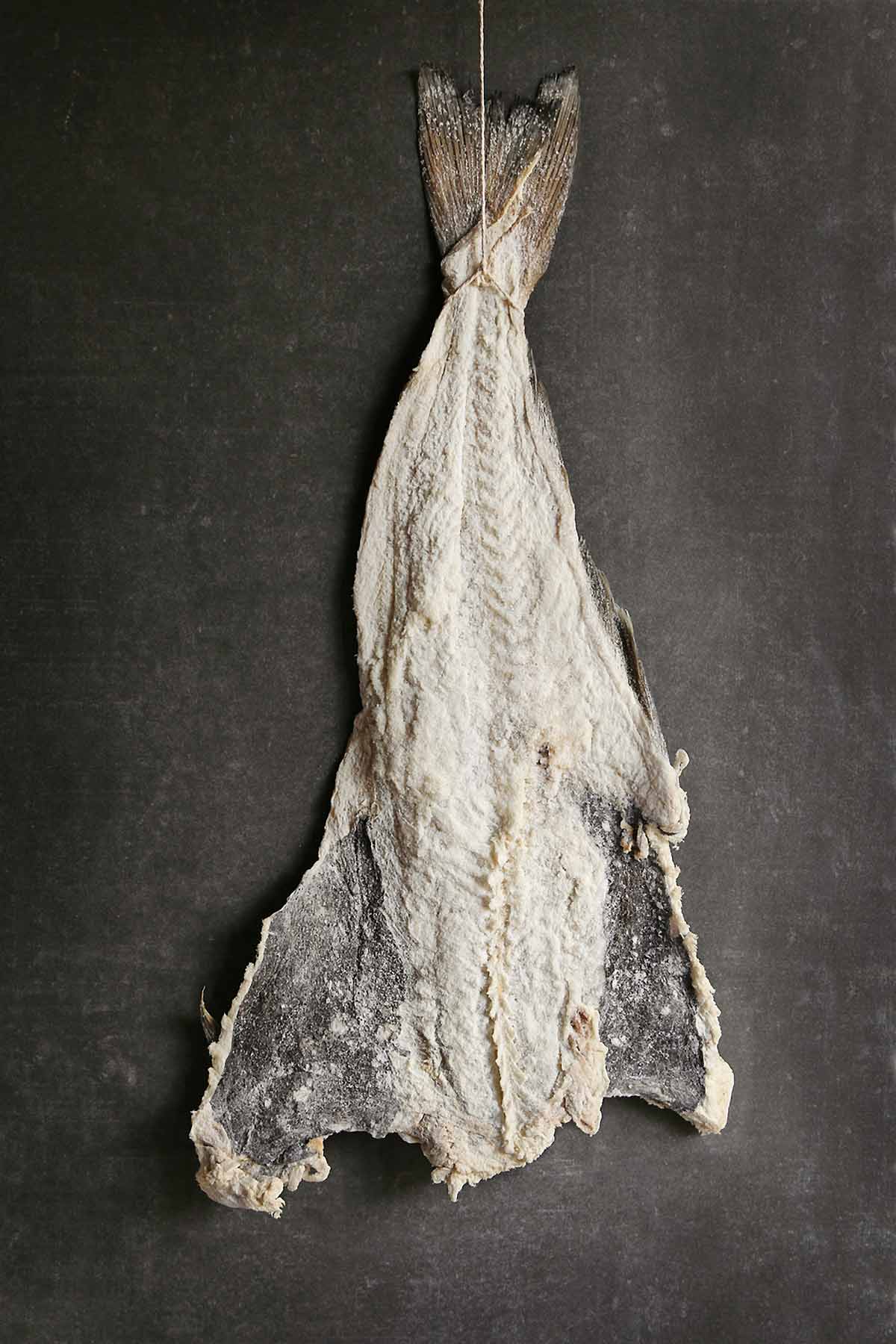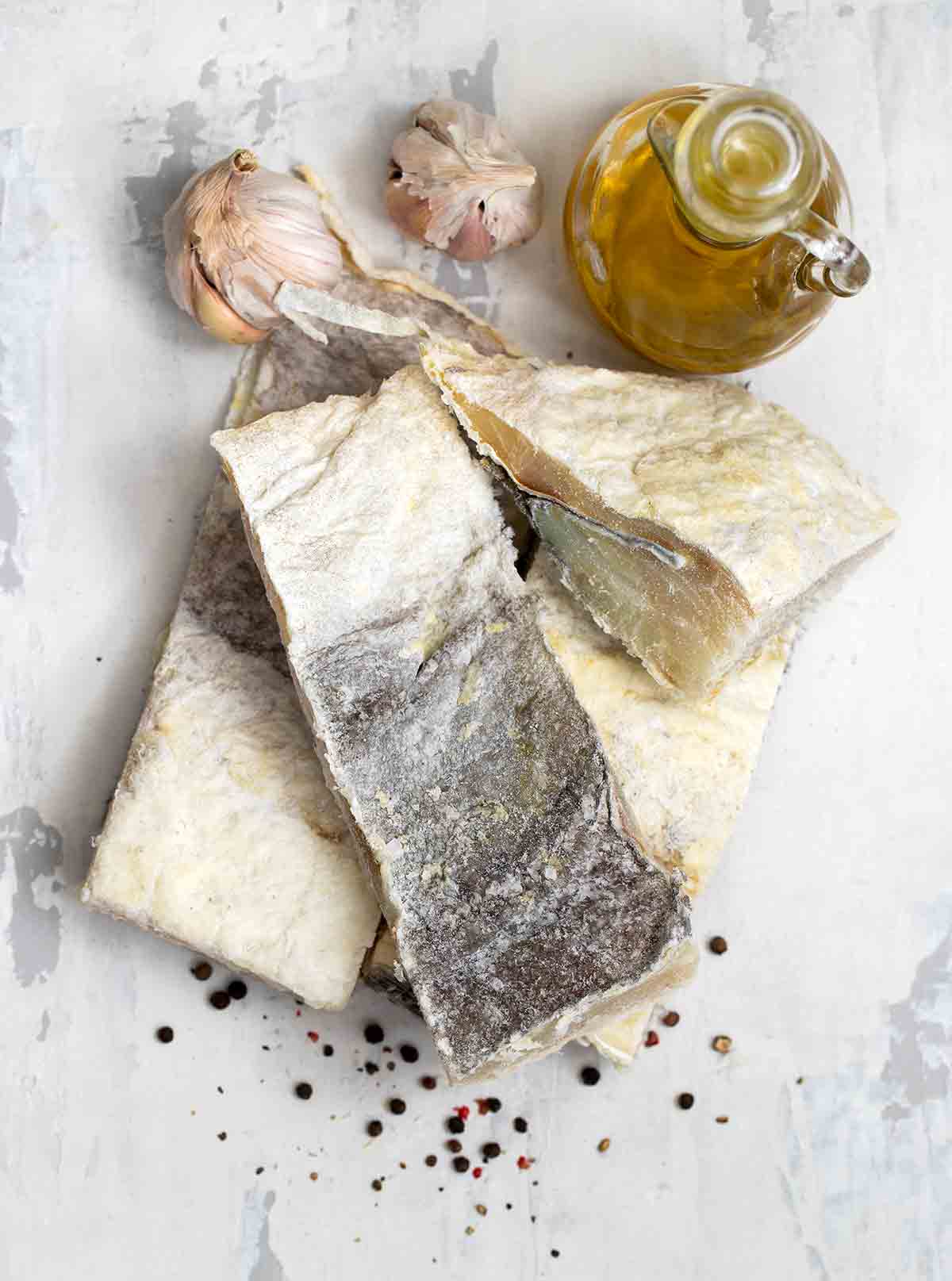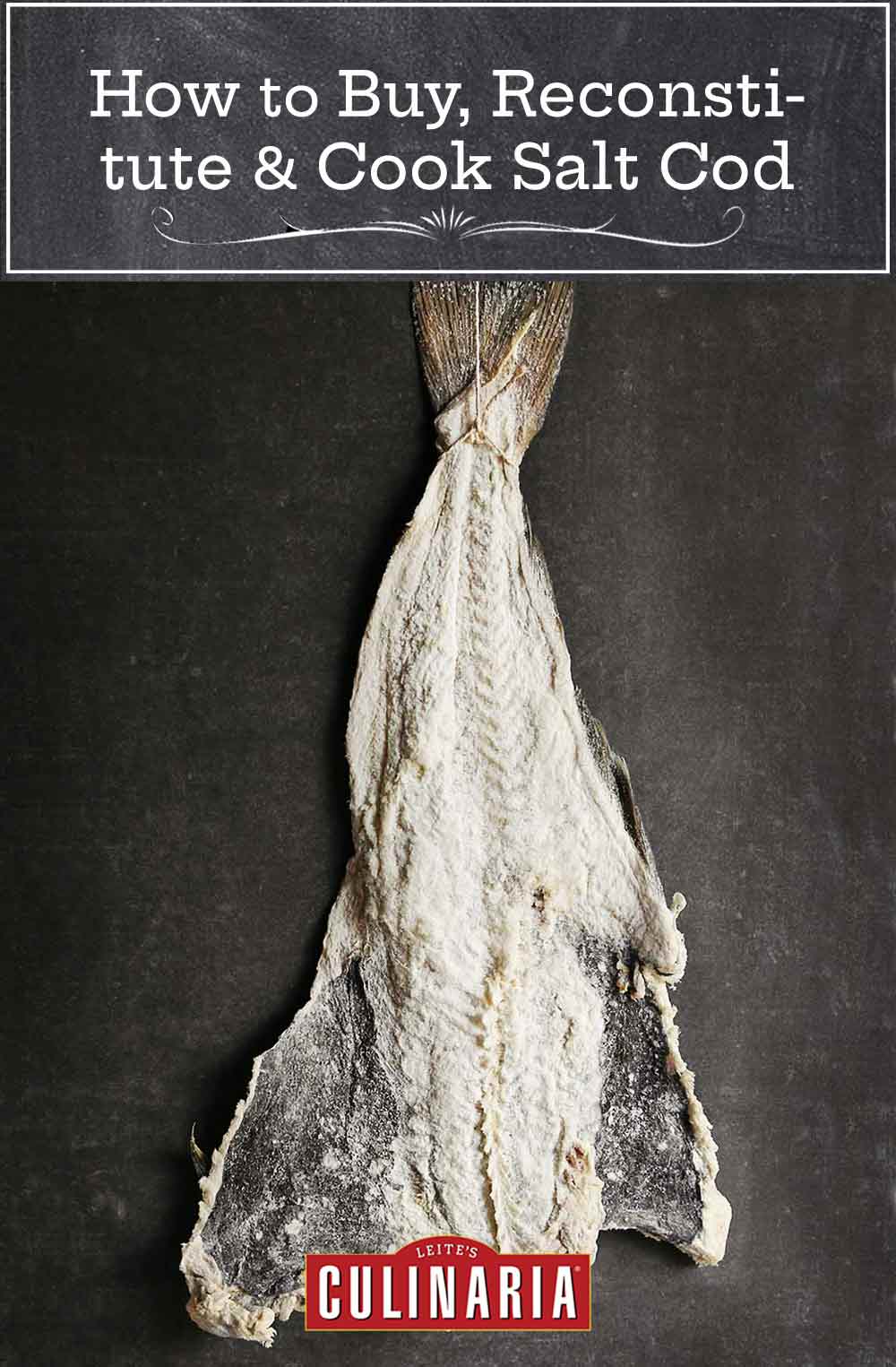
How to buy salt cod

How long to soak the cod
First, rinse the salt cod well under running water to remove any surface salt. Then place the piece or pieces of cod in a large bowl or other, more oblong container and add enough cold water to cover by at least a couple inches. Stretch some plastic wrap over the bowl so it’s tightly covered (trust us, you’re going to want this to be airtight) and refrigerate, changing the water several times, until the fish is sufficiently desalted for you, anywhere from 12 to 48 hours, depending on the type and size of the fillet. Take a nibble now and again. If the cod seems too salty, change the water again and let it sit for a few more hours. Bear in mind: You can always add more salt to the recipe later, but you can’t take any more salt away once the cod has been incorporated into your recipe.

How to cook salt cod
Pour enough water–or, if you prefer, milk to temper a little of the fishiness–to submerge the cod in a saucepan and bring to a boil. Reduce the heat to low, add the soaked and drained cod, and simmer gently until it flakes easily when poked and prodded with a fork, 15 to 20 minutes, depending on the thickness of your fillets. Drain in a colander and let cool. Remove any bits of skin, bones, and spongy ends and then carry on with the recipe. (And if you’re tempted to try to substitute fresh cod, for the love of all things good, don’t do it. Salt cod is a marvelously unique ingredient that brings a complex and, curiously, almost sweet taste and incomparable texture to dishes.)











Why would anybody freeze dried cod? The whole salting and drying process was developed to preserve the fish before refrigeration was available. I could see freezing fresh cod and often do it myself after vacuum sealing. Is it frozen after reconstituting to simplify preparation?
Some people, like members of my family, don’t want the smell in the kitchen, so they wrap it really, really well and freeze it.
Salt fish was our Sunday morning breakfast when I was a child.
Audrey, how was it prepared?
Still hoping to find “fresh” salt cod in a market around here in Seattle. So far all we’ve found is frozen – packaged in one pound boxes at a local fish market (Pike Place Market) and it’s pretty pricey at $20 for that one pound.
I’m assuming I would need to thaw the cod first, and then start the process of soaking and cooking – can you confirm that for me?
I’m planning to make Bacalhau à Brás since I do have one of those boxes in my freezer, and I think I might head to the Brazilian market for some batatas palha to make my life easier 🙂
Thanks for these recipes – since we can’t return to Portugal for the foreseeable future I’m going to have to recreate some of our favorite recipes at home for now!
Cynthia, yes, you would have to defrost the salt cod and then soak it. I hope the bacalhau à Brás turns out well. Which recipe are you using?
Your recipe, of course! I may substitute batata palha in place of the potato matchsticks though – our local Brazilian market carries them (but not the salt cod). I did learn that a local fish market does carry unfrozen bacalhau (although they’re currently sold out), but now I wonder – how do you store it, and how long can I keep it laying around? Would it make sense to buy a couple sides? I also want to make pasteis de bacalhau and a couple of other dishes we loved in Portugal
Cynthia, we keep it in the fridge–well wrapped–if using it soon. Otherwise, we freeze it! A lot of folks use batata palha without a problem!
Or you could do as the Norwegians have done for centuries. Soak the cod in a lye solution, then rinse and soak the lye out. Lutefisk is something of an acquired taste. If it is done right, you get a mild, slightly salty, flakey, and almost gelatinous fish. Not done right and you get a nasty fish Jello. Hard to find either salt cod or lutefisk down here on the Gulf.
Thanks for sharing that with us, Vincent. Here’s hoping no one has to eat any done the wrong way!